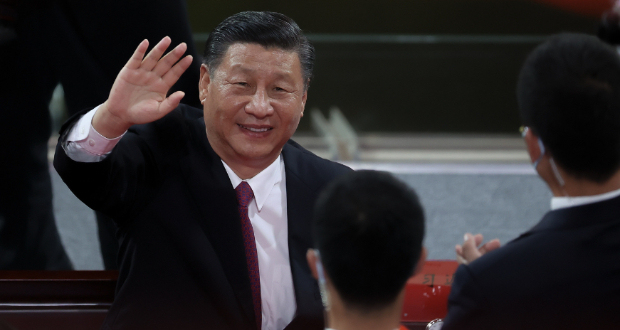In April 2022, during his address at the Boao Forum for the Asia Annual Conference, Chinese President Xi Jinping announced the ambitious Global Security Initiative (GSI). He presented GSI as a comprehensive framework for addressing global security challenges, including maintaining global security, enhancing coordination among regional organisations, and addressing diverse challenges ranging from traditional conflicts to climate change to cybersecurity. China rarely participated in international mediation initiatives, preferring to be a neutral onlooker and retain its flexibility. Therefore, the new Chinese position in global security issues and its true objective became a matter of debate.
In April 2022, during his address at the Boao Forum for the Asia Annual Conference, Chinese President Xi Jinping announced the ambitious Global Security Initiative (GSI).
Yet, the security focus of China should not be a surprise. Since Beijing announced its Belt and Road Initiative (BRI) in 2013, it has started taking more proactive actions in different conflicts, going beyond its traditional approach of limited engagement and playing a more assertive role as a mediator. As Beijing’s economic influence continues to expand, it has been trying to gain more political influence in the countries of South Asia, Africa, the Middle East, and Latin America. Therefore, the GSI represents China’s attempt to institutionalise its leadership role as a security provider. In other words, it is Beijing’s first step towards obtaining that coveted diplomatic clout, where it will be more capable of influencing the outcome of negotiations in different conflicts across the world. Elizabeth C. Economy, in her book “The World According to China”, opines that China’s ultimate aim is not only to remould the existing world order but also to supplant it with a new China-centric world order.
So far, Beijing’s conflict management approach is still primarily driven by its economic and security interests. It is characterised by participation and avoiding direct involvement. However, China is laying the groundwork for deeper involvement to create a new structure that would contribute to the rise of the Chinese Communist Party (CCP). The Global Security Initiative (GSI) is a decisive step towards Chinese rejuvenation, also known as the ‘China dream’, towards creating that alternative security architecture.
Different tenets of China’s conflict resolution in Africa
Over the past few years, China has steadily built its profile as a global security provider, particularly in Africa. One month before the announcement of GSI, in March 2022, China proposed an “Outlook on Peace and Development in the Horn of Africa” to facilitate a Chinese-led peace process in Ethiopia and the Horn of Africa. There is ongoing debate surrounding its modus operandi and probable implications of the GSI for Africa.
Indeed, over the years, while engaging with Africa, China has followed the policy of non-interference in internal politics, focusing only on economic aspects. The root of this policy lies in the five principles of peaceful coexistence, proclaimed by Zhou Enlai in 1954. However, Beijing’s recent diplomatic involvement in different parts of Africa, including Ethiopia, Mali, Somalia and now Niger, reveals its intention to play a more proactive role in conflict zones. Some scholars termed this as a shift from noninterference to creative involvement. Indeed, this pragmatic approach, non-interference with Chinese characteristics, allowed Chinese foreign policymakers to decide on the level of interference, moving away from strict noninterference.
China maintains a strategic ambiguity regarding its conflict resolution mechanism, a careful mix of interference, influence, and intervention. Moreover, China wants to retain its strategic autonomy to conduct a case-by-case evaluation and select conflicts to be engaged in, as well as its conflict resolution mechanisms based on its own interests, priorities, and limitations.




